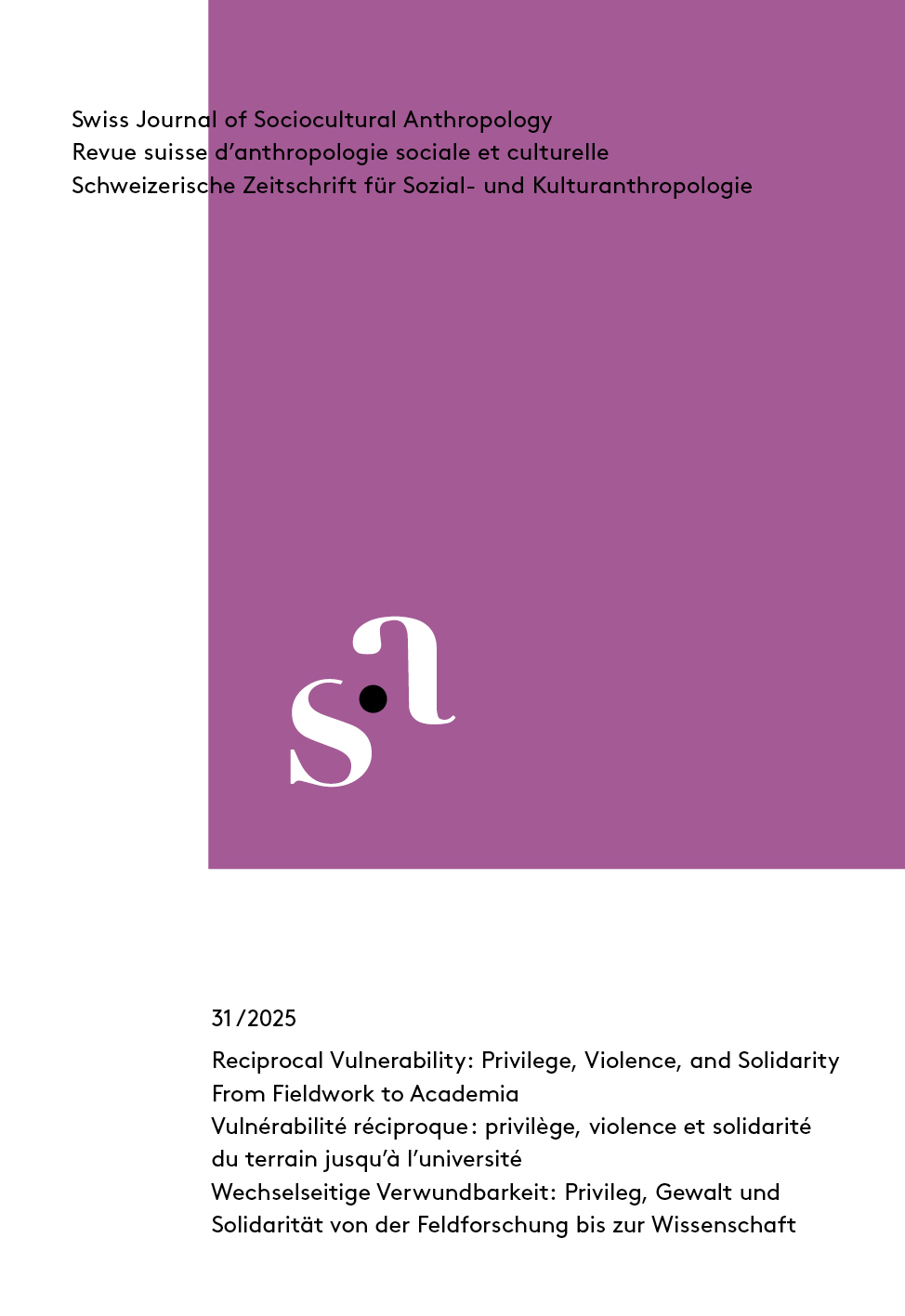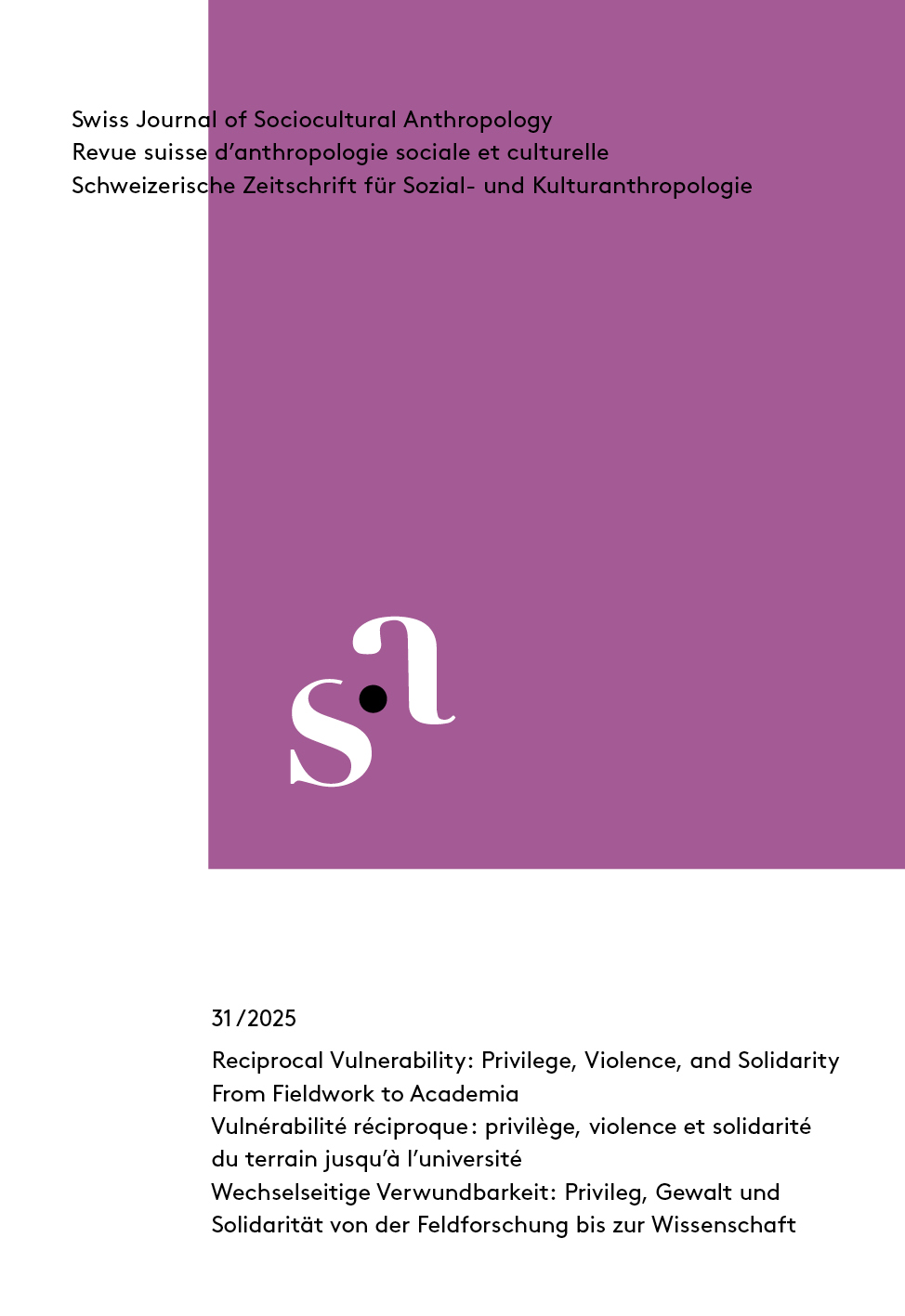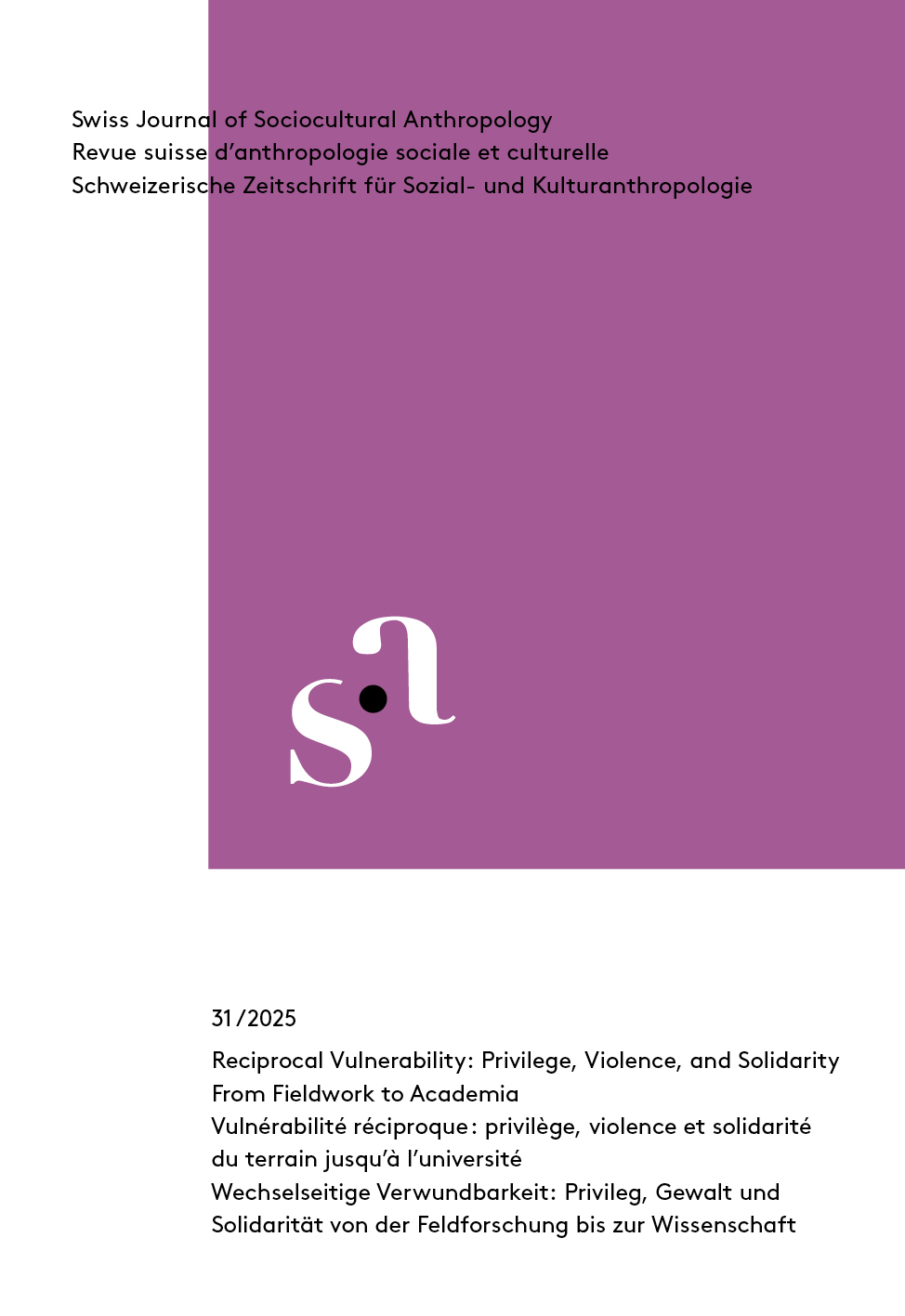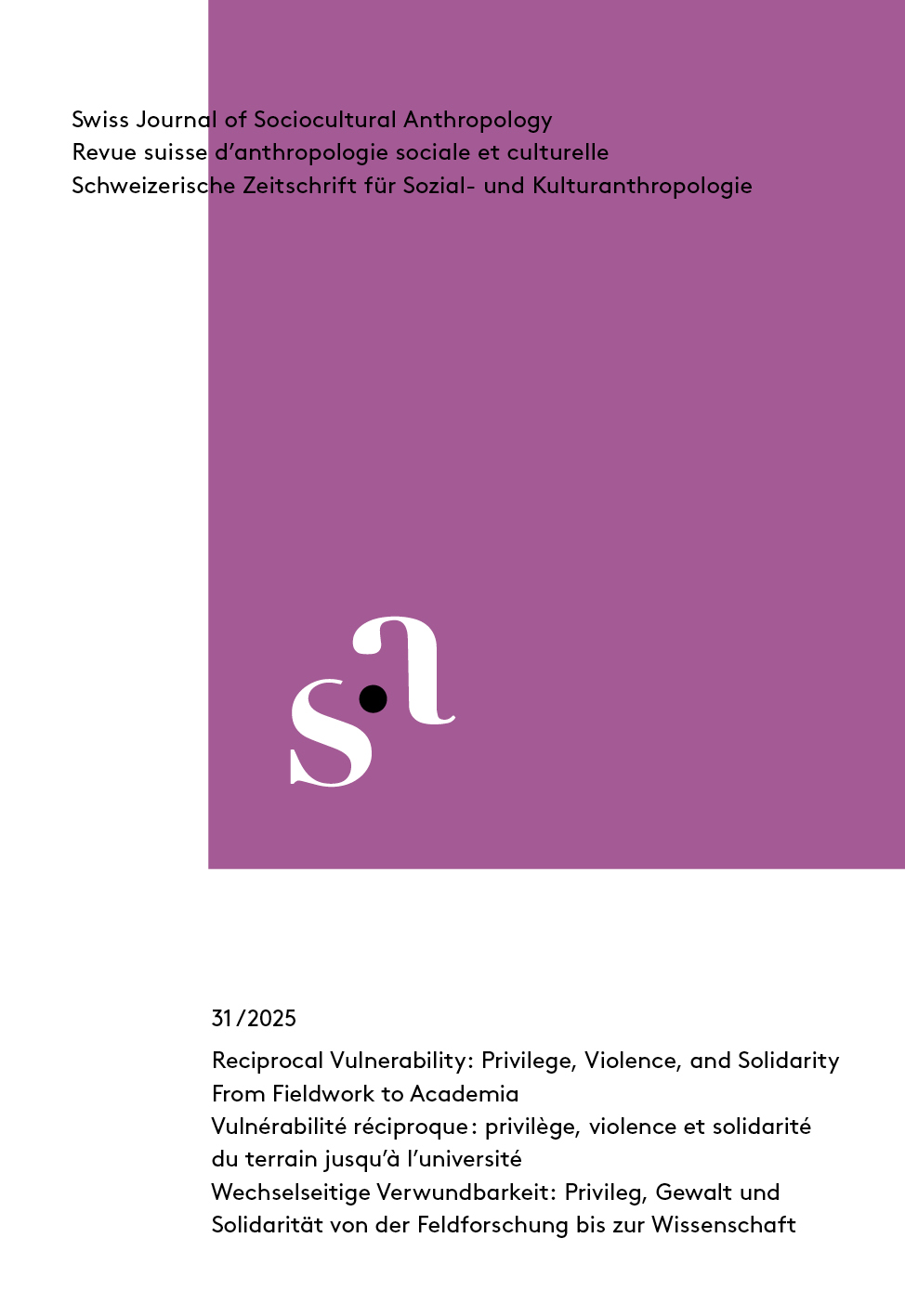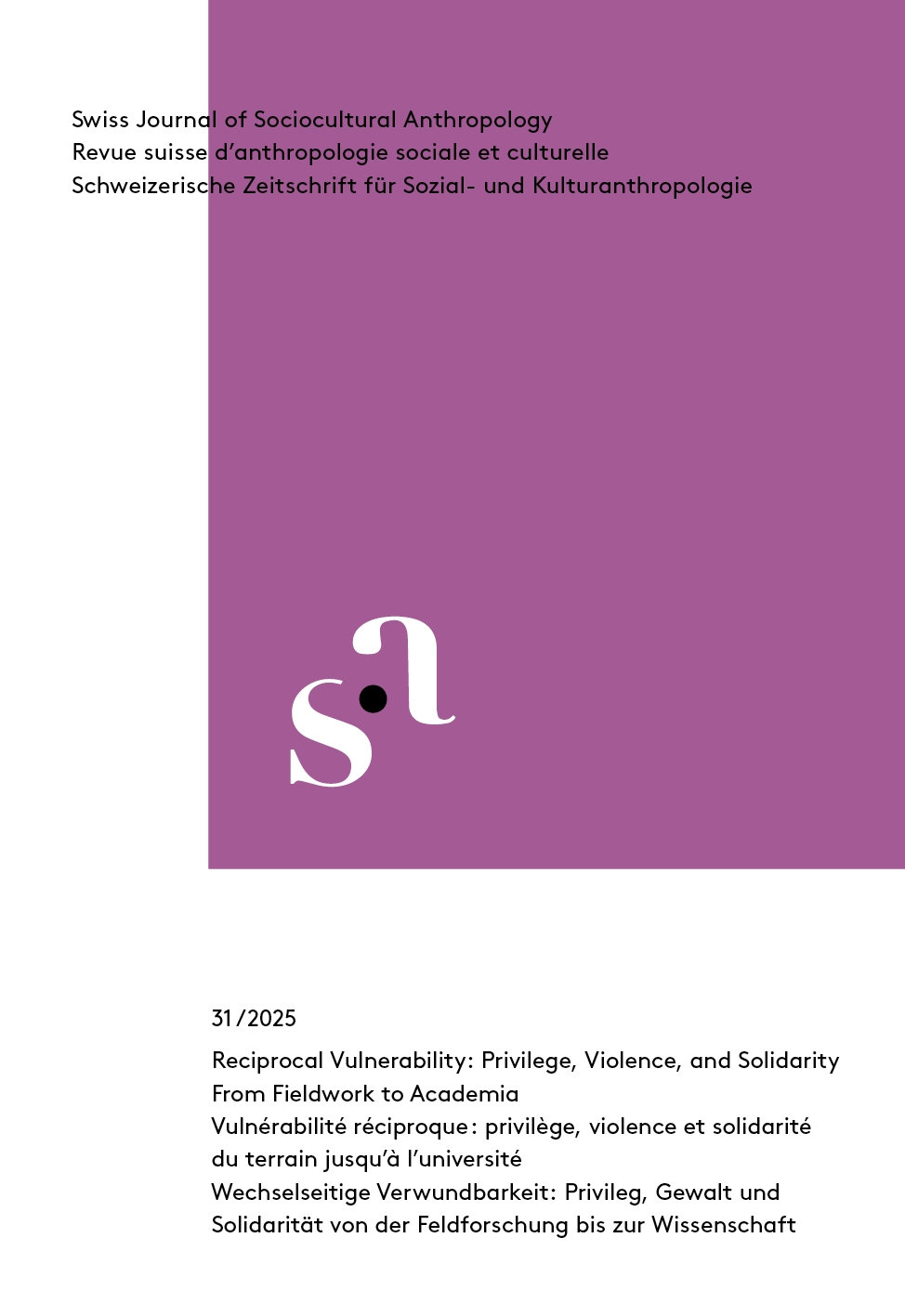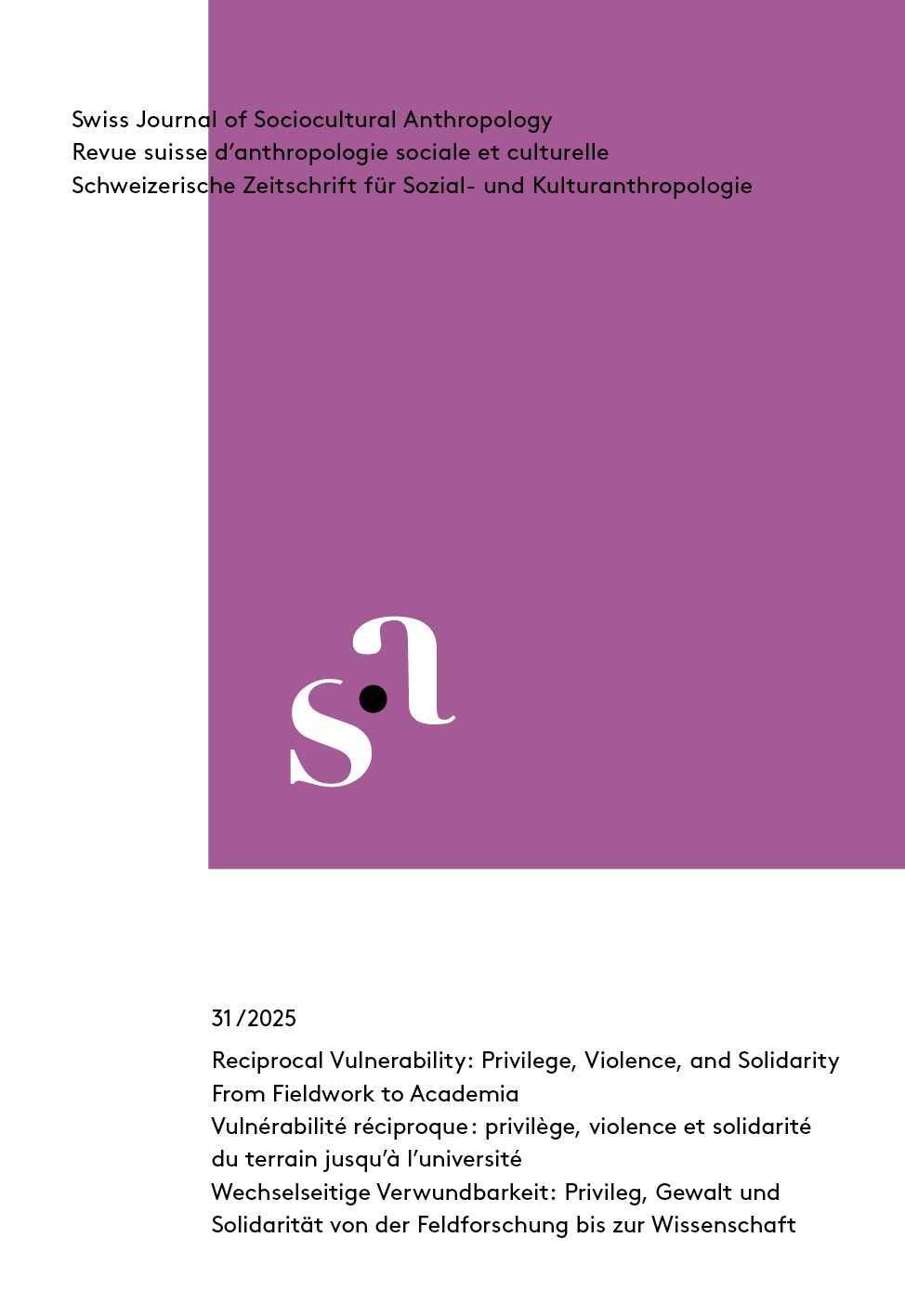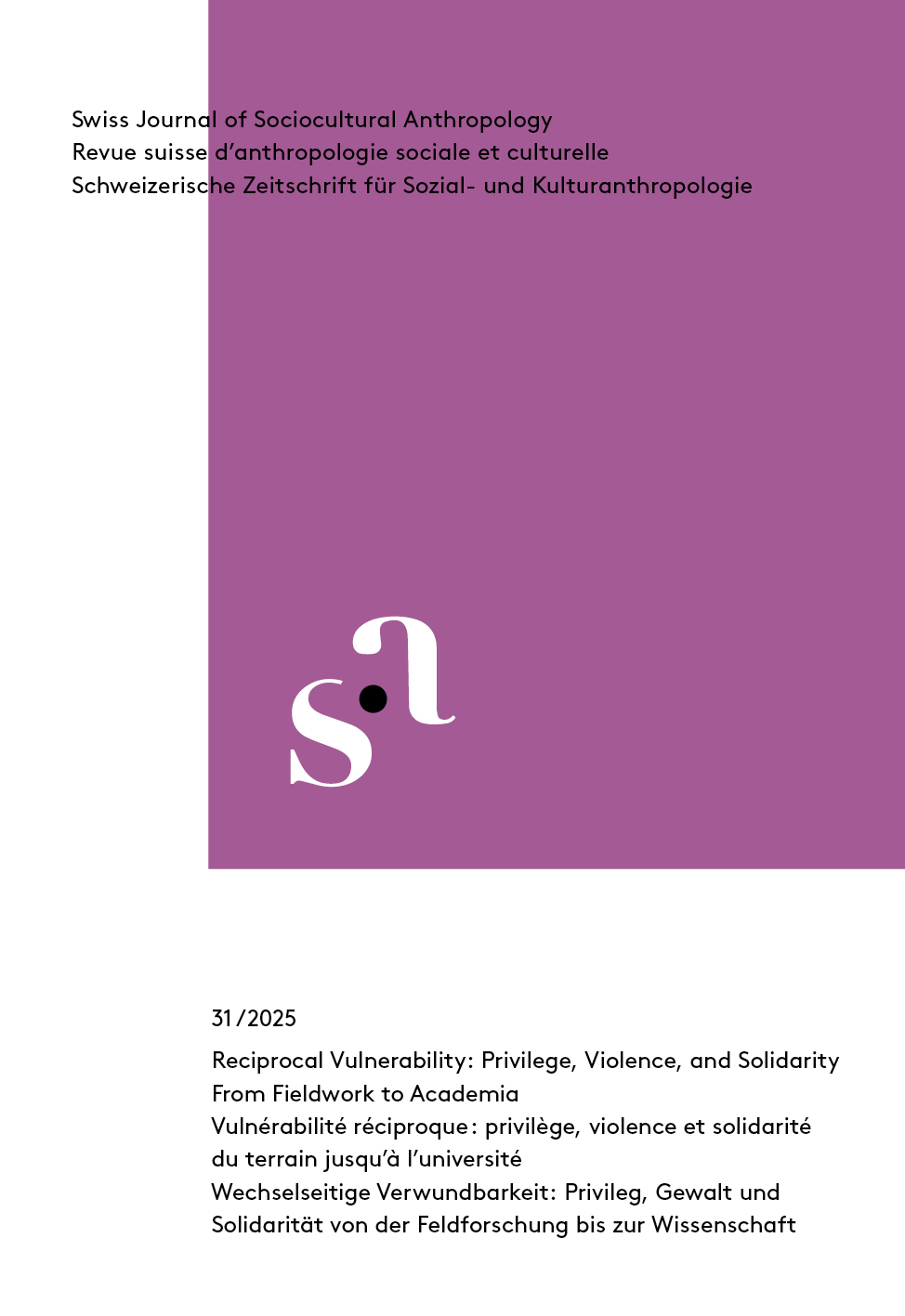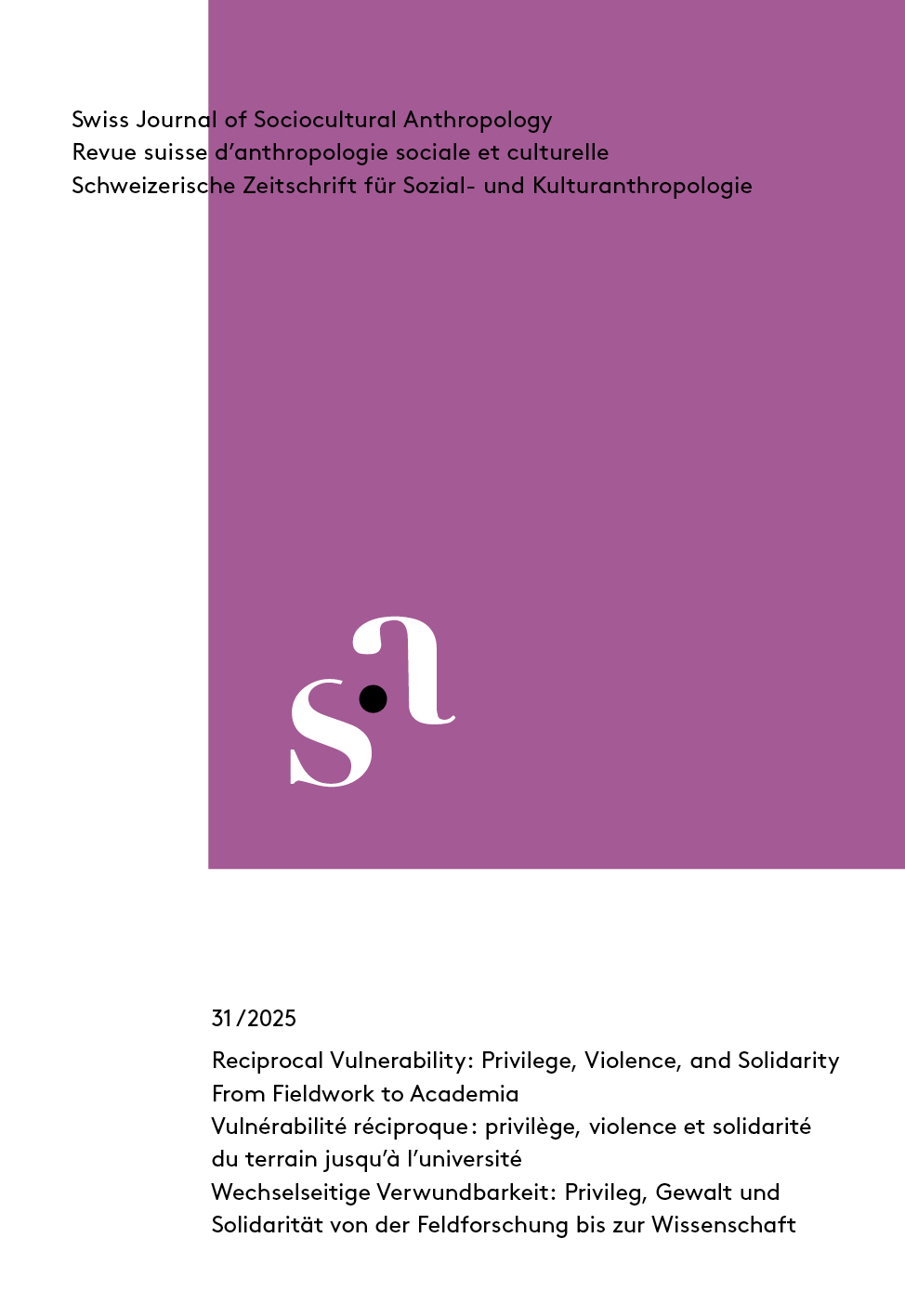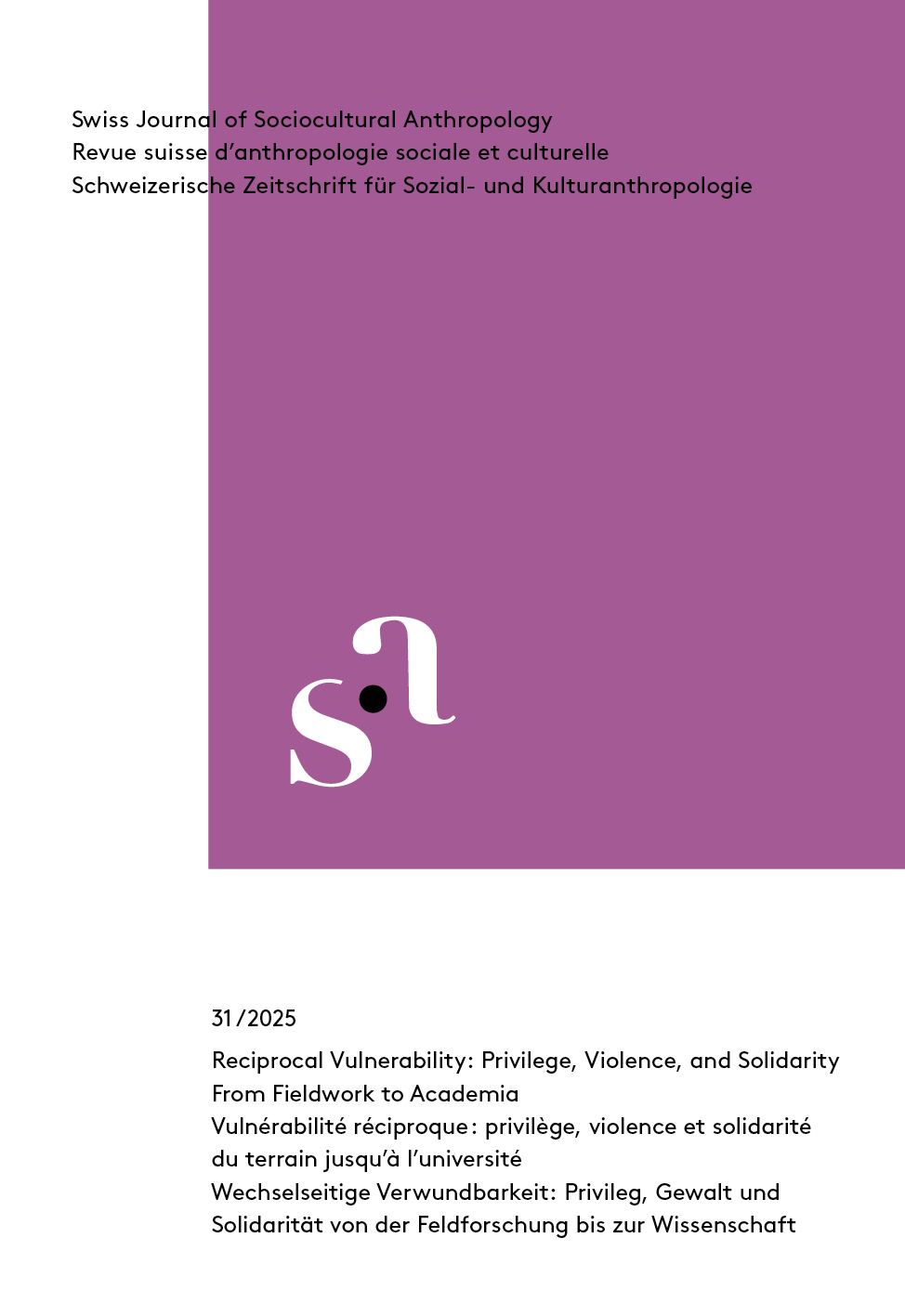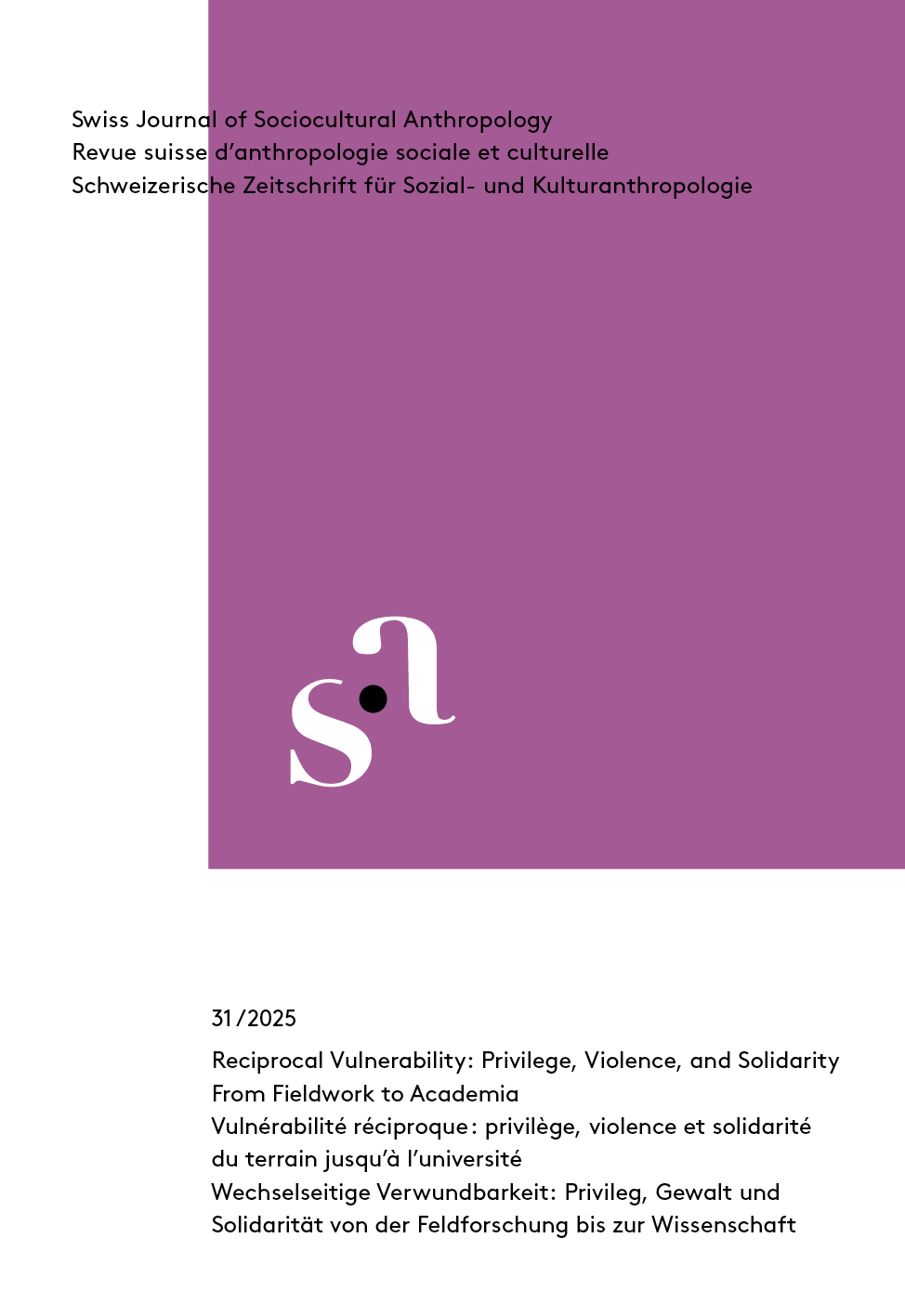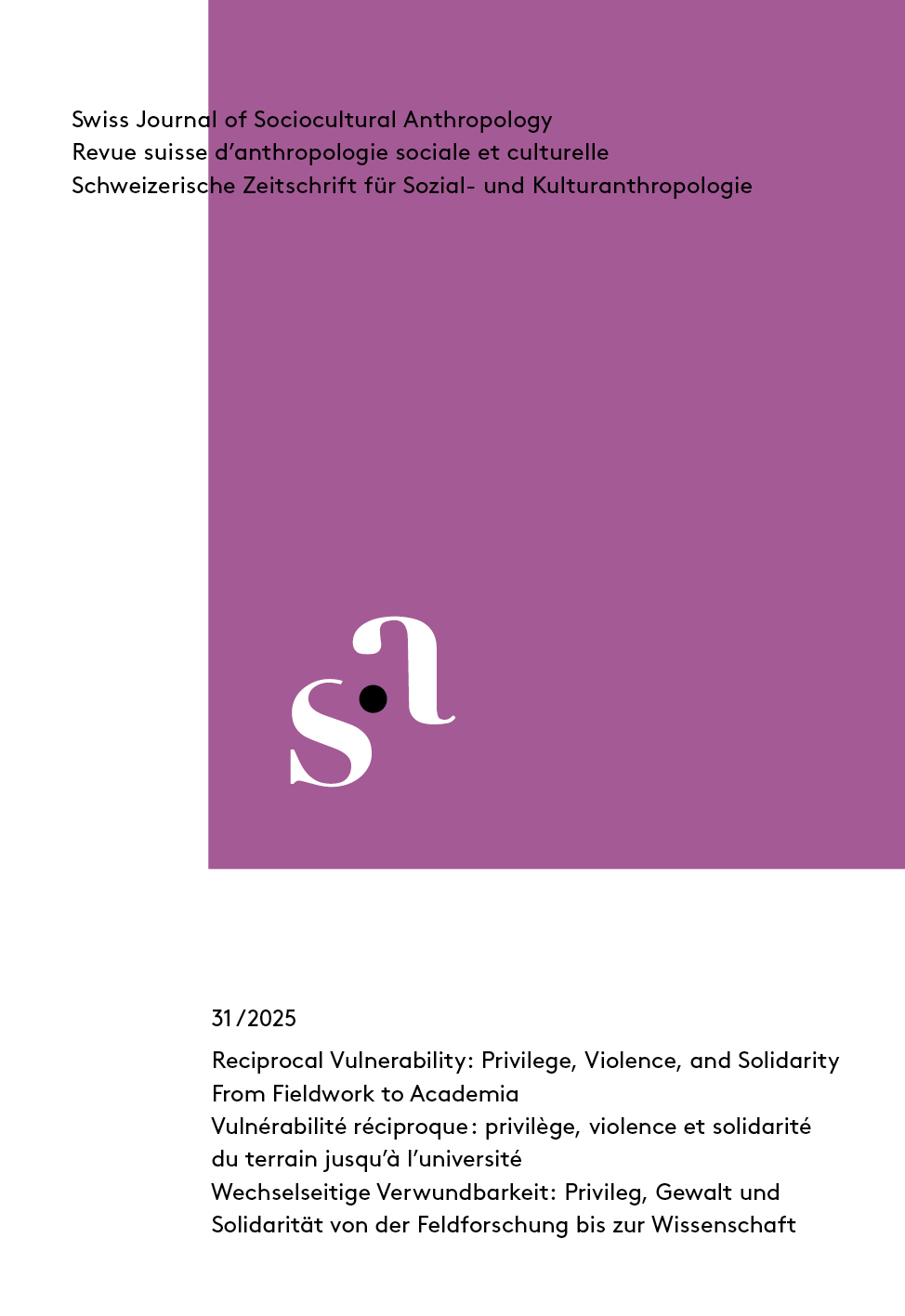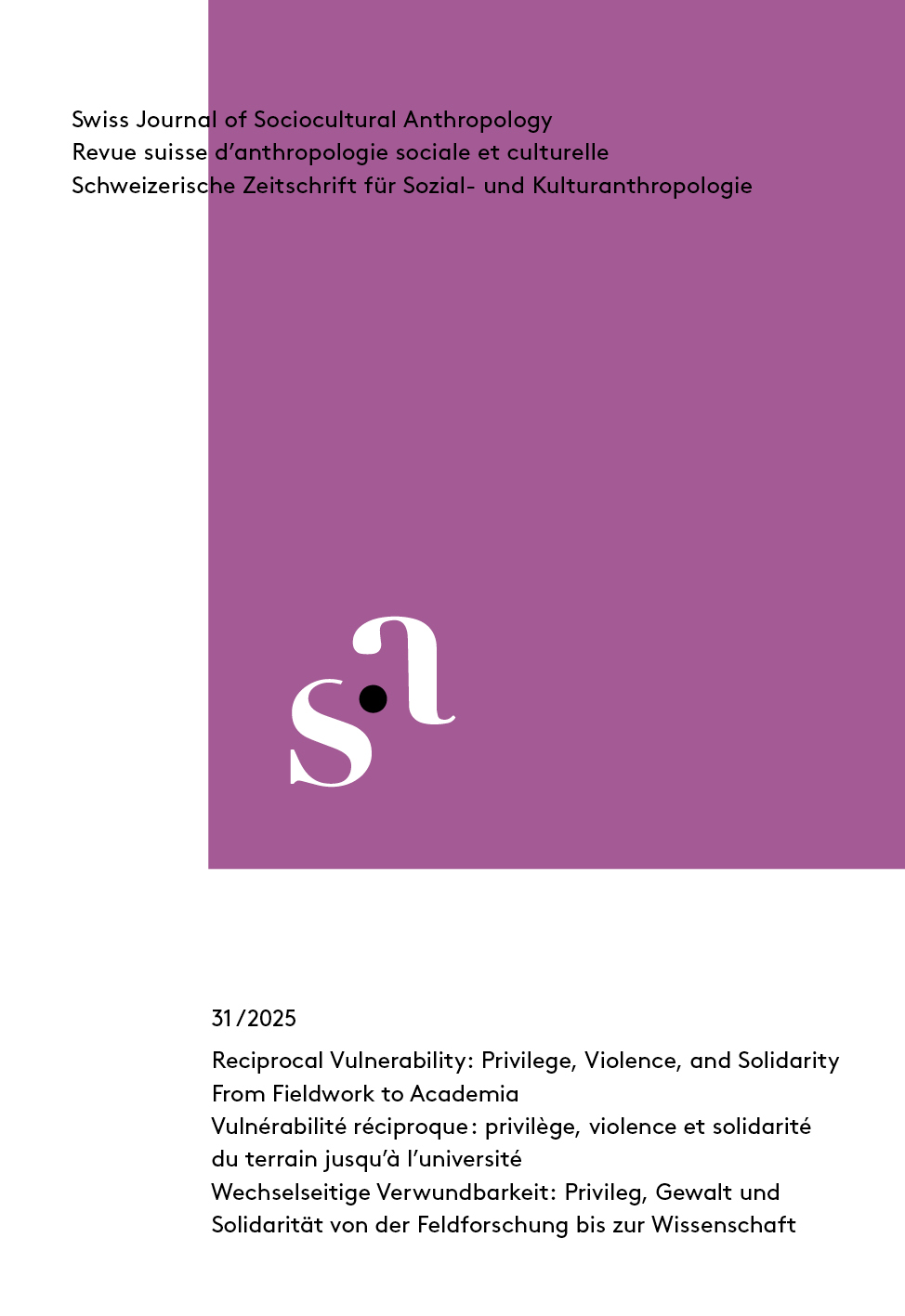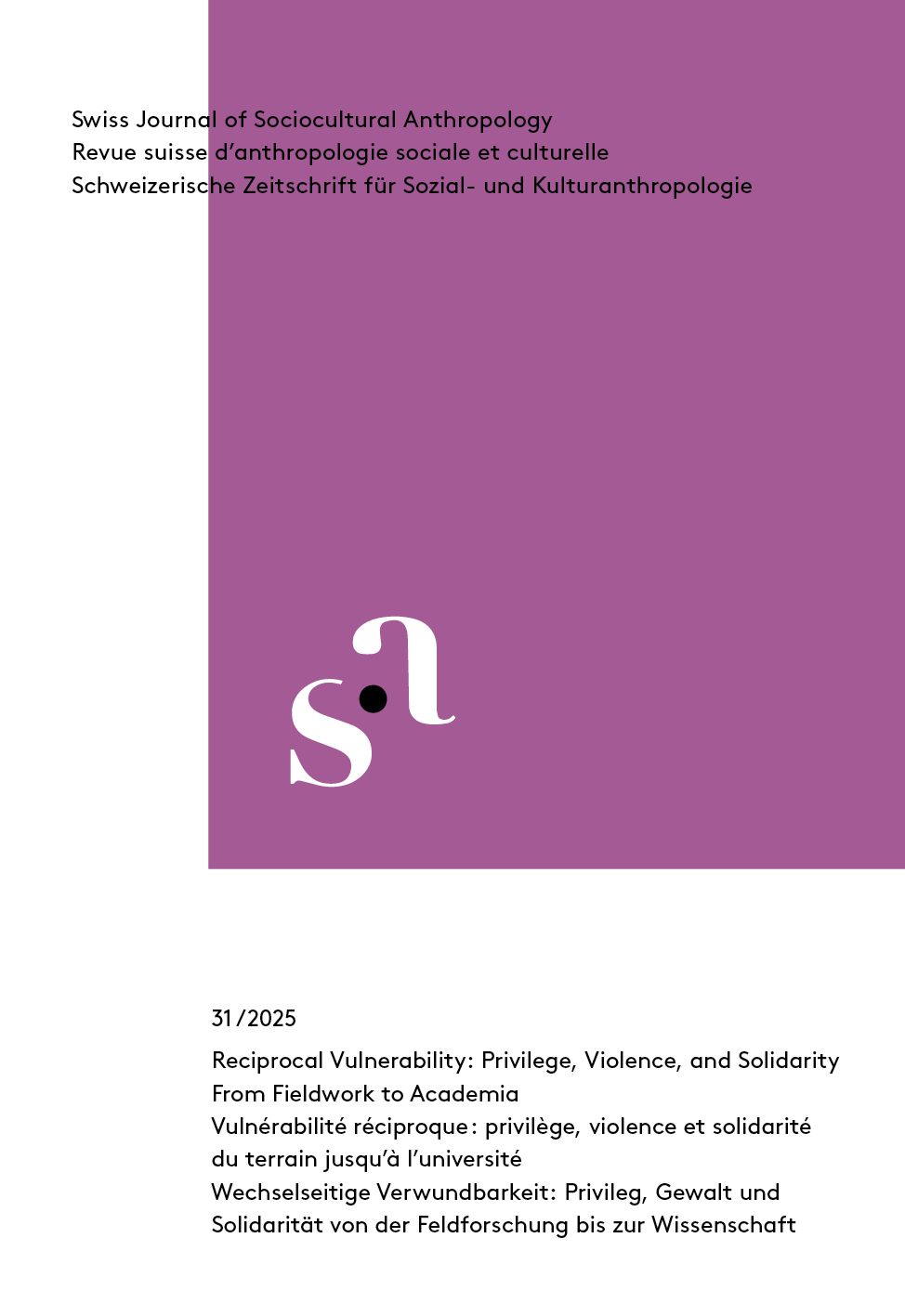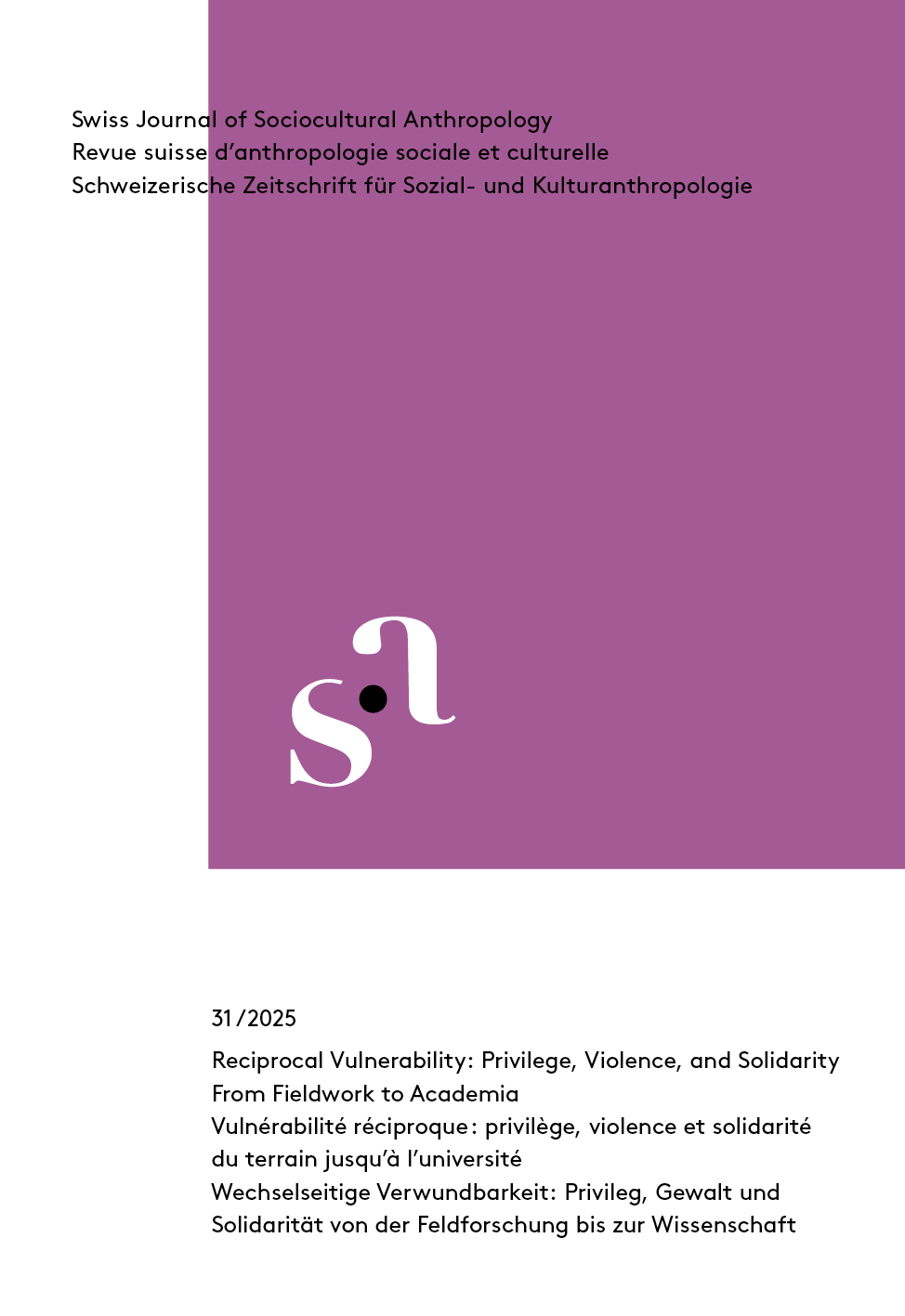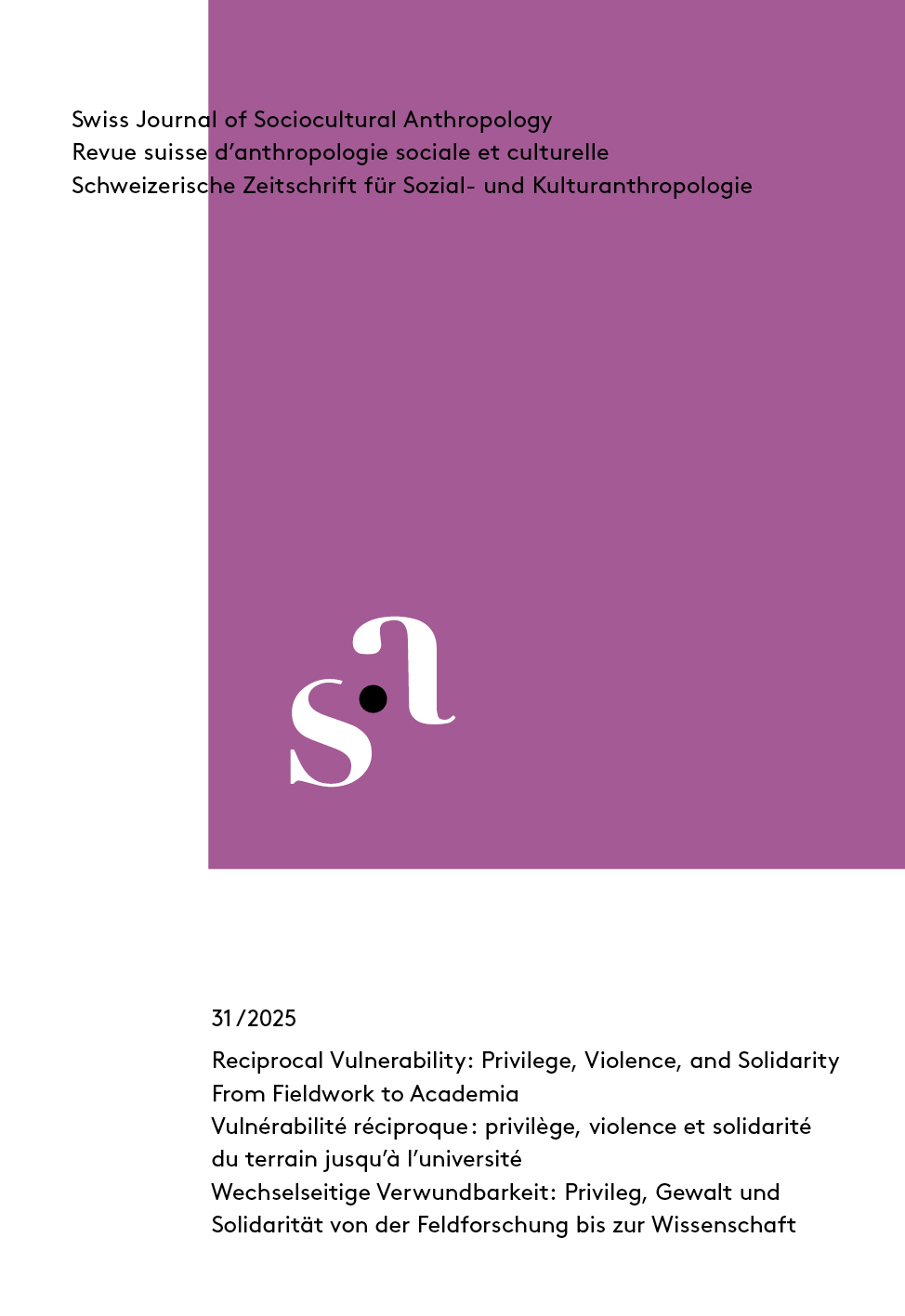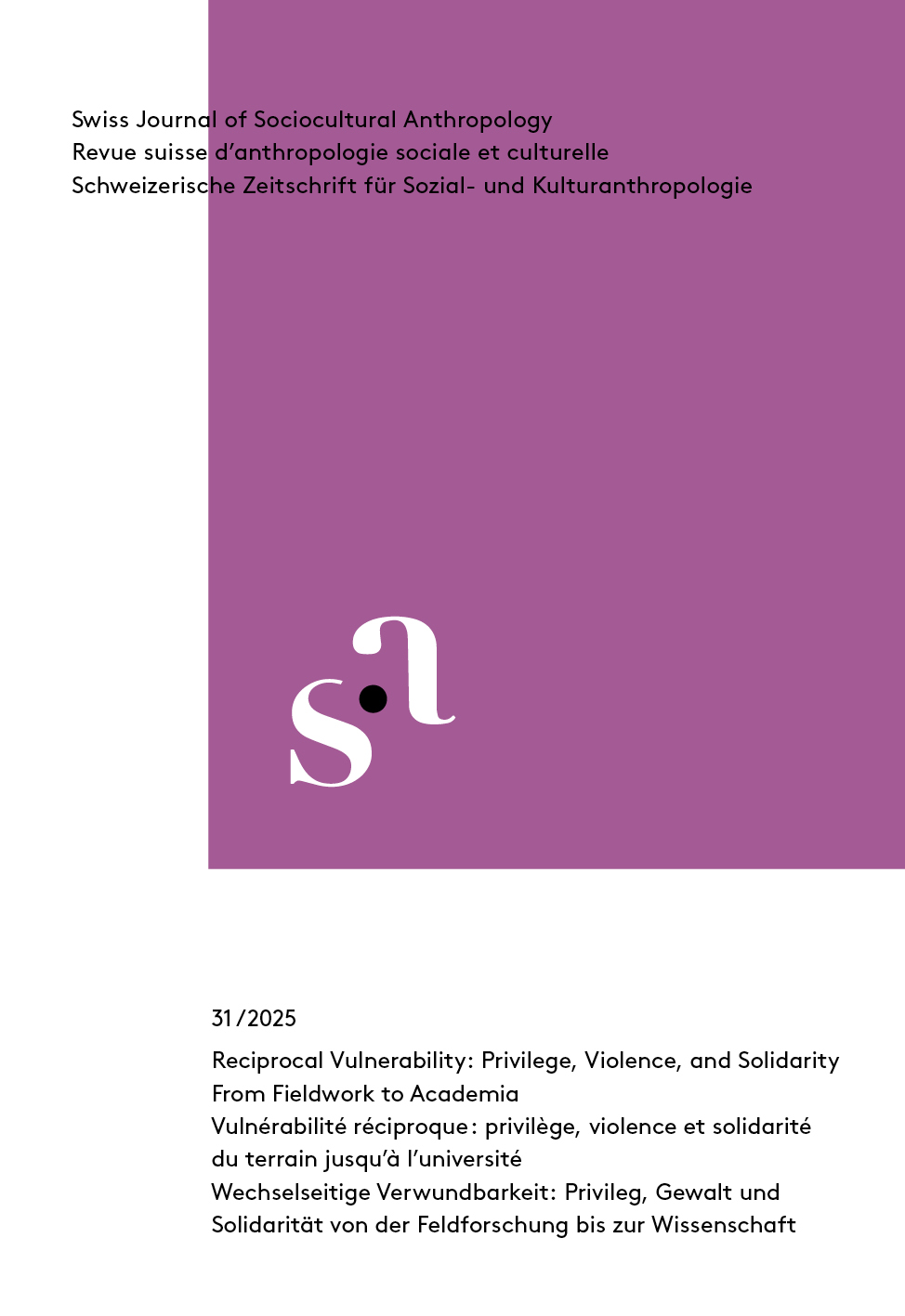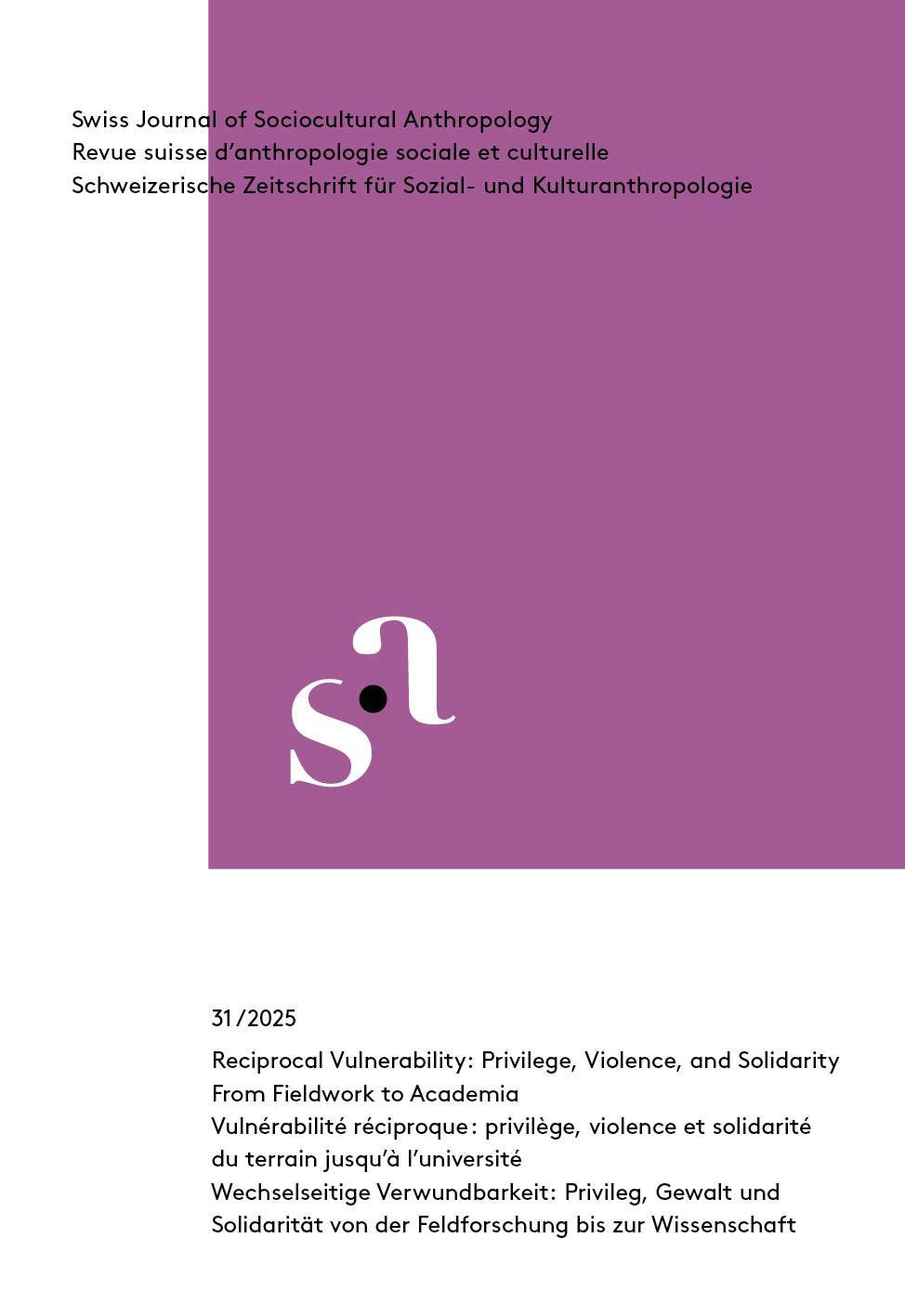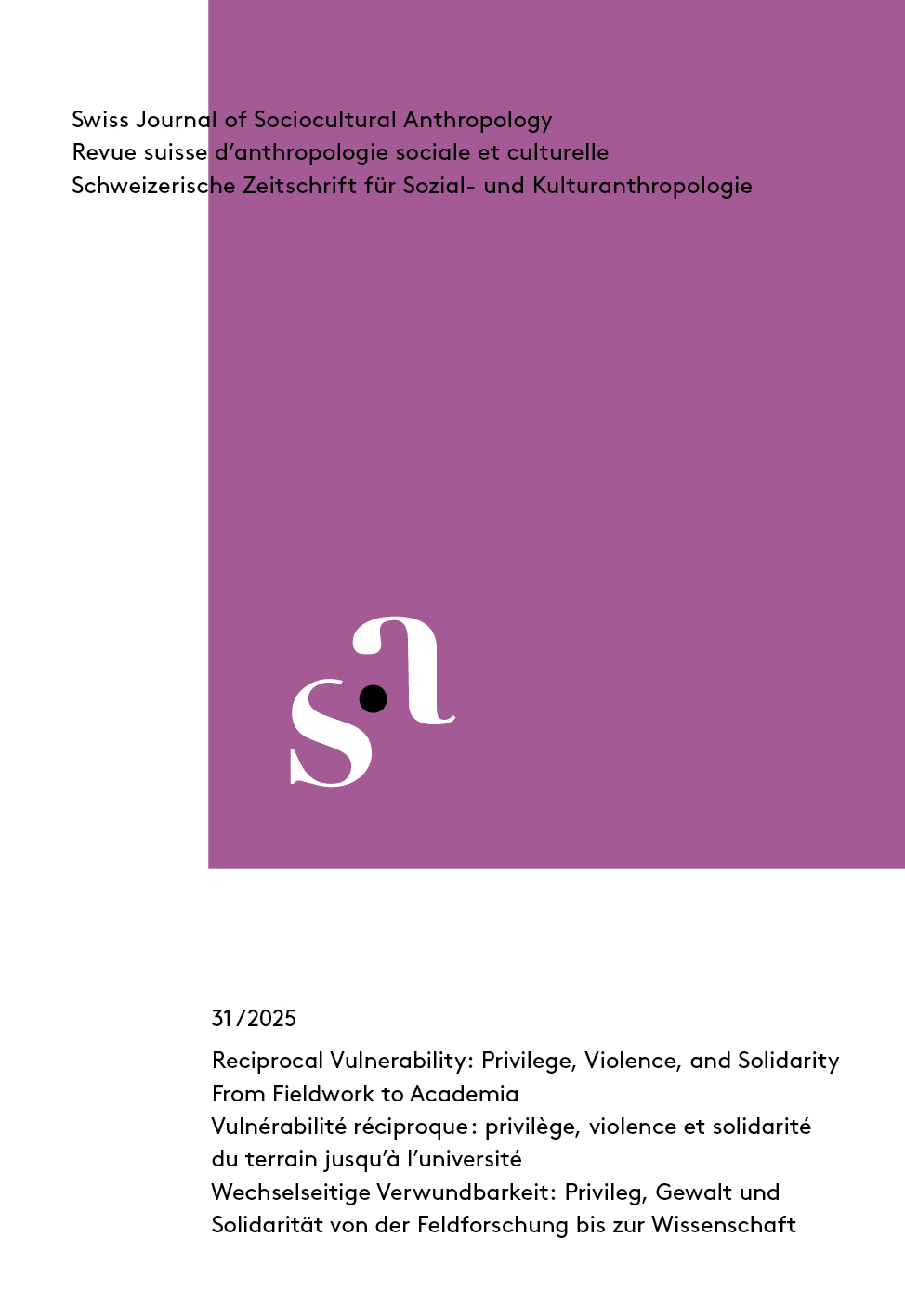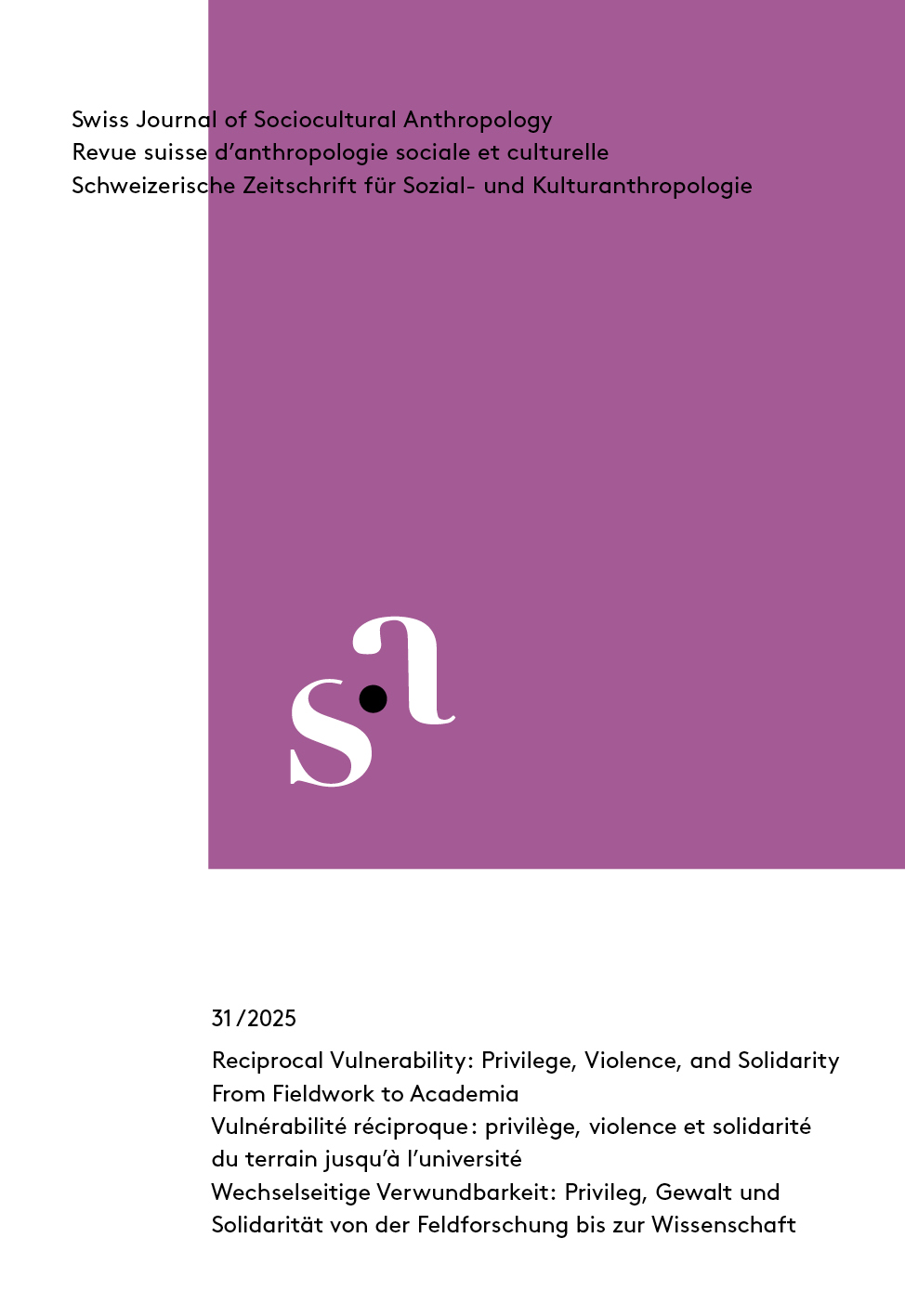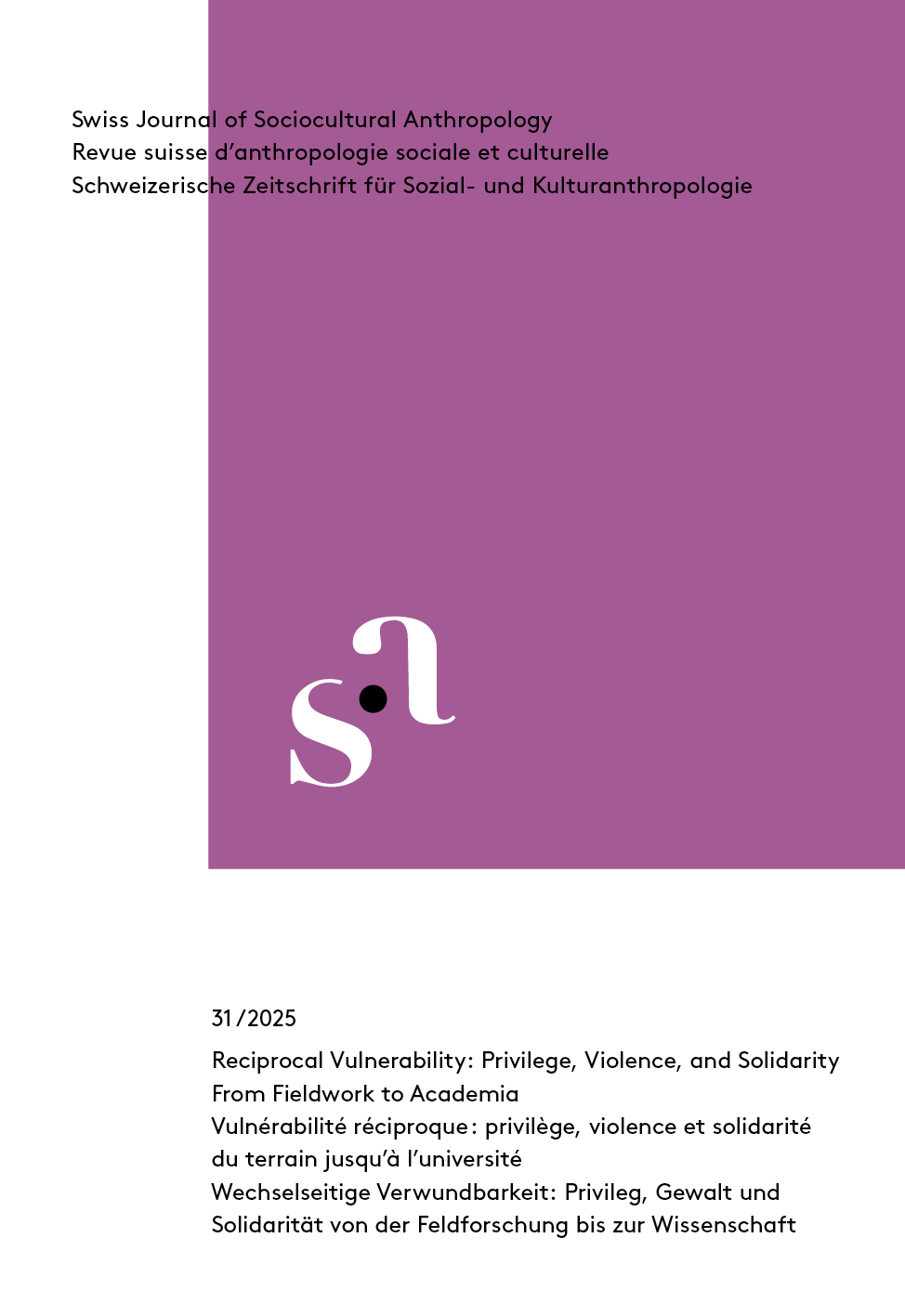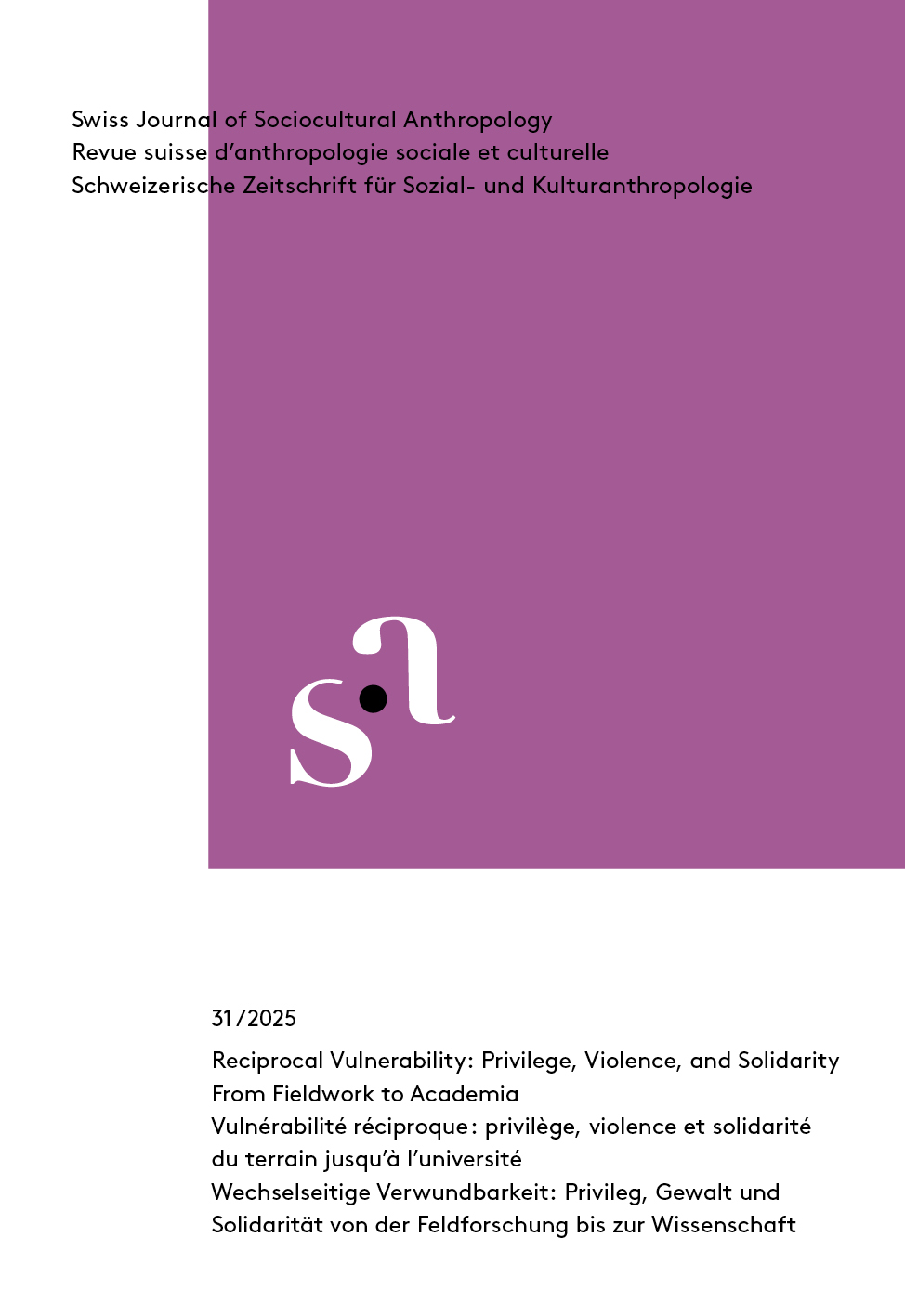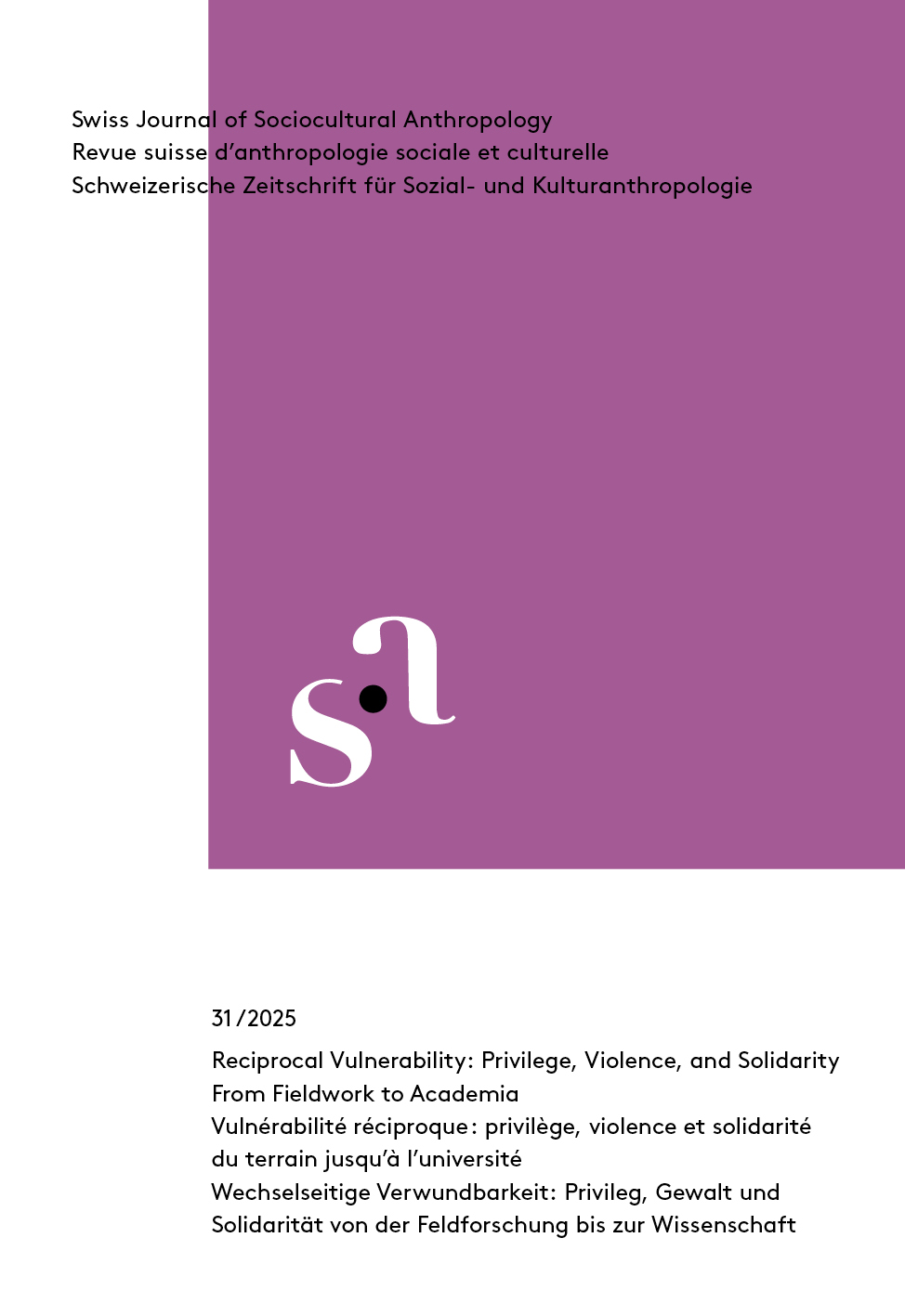Volume 31, No. 1Reciprocal Vulnerability: Privilege, Violence, and Solidarity from Fieldwork to Academia
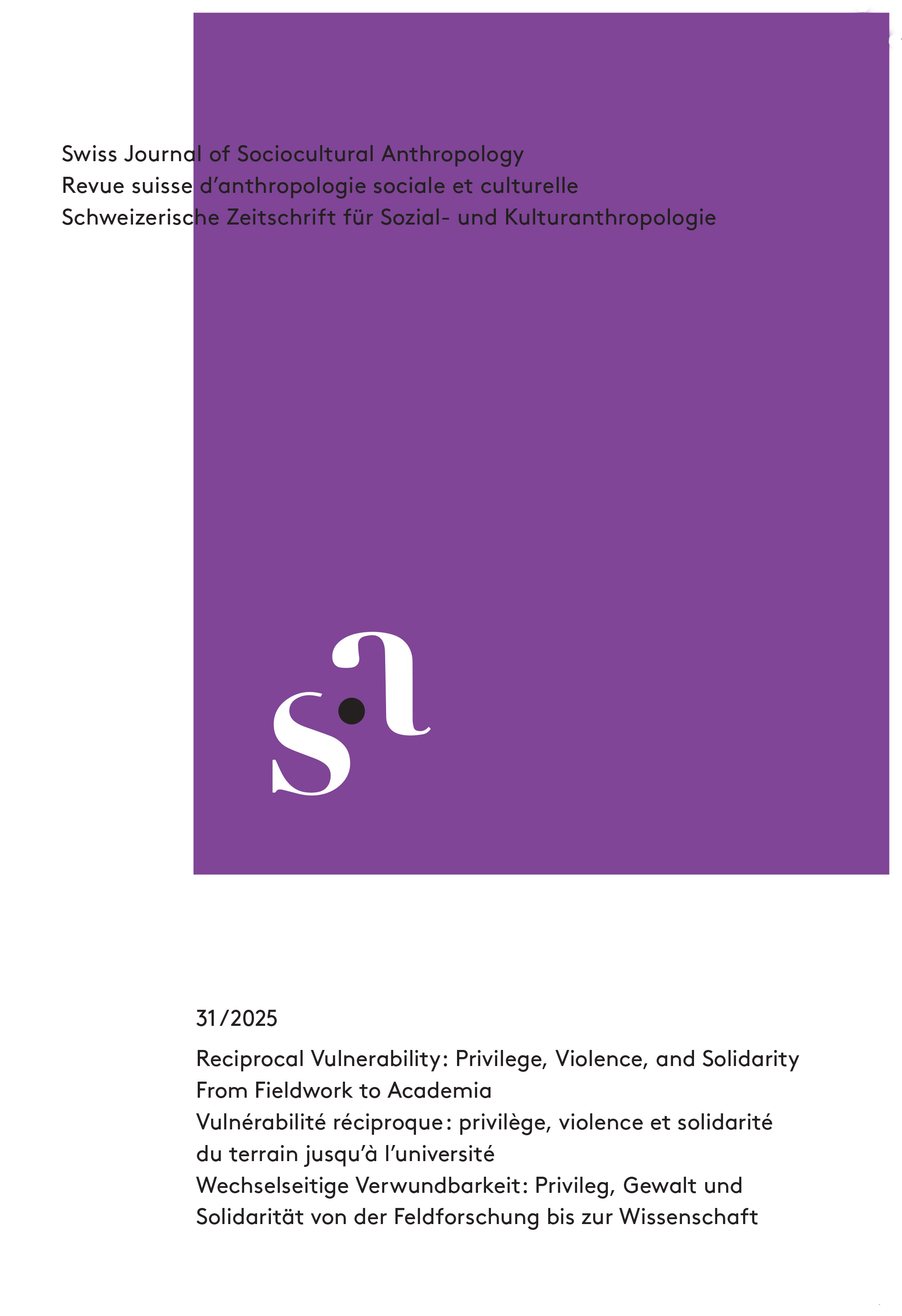
Issue description
This issue of the Swiss Journal of Sociocultural Anthropology hosts a dossier that seeks to uncover the vulnerabilities encountered by researchers in anthropological fieldwork and academia, tracing their political and epistemological potential in the creation of ethnographic k ... See the full issue
Editorial
Special Issue
Current Research
Debates
About
The Swiss Journal of Sociocultural Anthropology is the peer-reviewed journal of the Swiss Anthropological Association and publishes ethnographically and theoretically grounded contributions on current issues and debates. As a tri-lingual journal, it strengthens the dialogue between different theoretical strands and scholarly traditions in social anthropology.
Announcements
-
2025-12-15
Call for Special Issue (spring/summer 2027)
The Swiss Journal of Sociocultural Anthropology invites proposals for a Special Issue.
The Special Issue consists of 4 to 6 articles and an introduction in English, French or German. Proposals that include articles in more than one of the journal’s publication languages are encouraged, as are proposals that incorporate an audio-visual contribution.
You are invited to submit your Special Issue proposal by February 15 2026 to the following email address: info@journal-sa.ch
-
2025-08-22
Books for review
SJSCA - the Swiss Journal of Sociocultural Anthropology reviews recent publications that make important theoretical or empirical contributions to anthropology. We have a particular focus on publications originating in the Swiss academic context. Are you interested in writing a book review? Get in touch with our book review editor.

